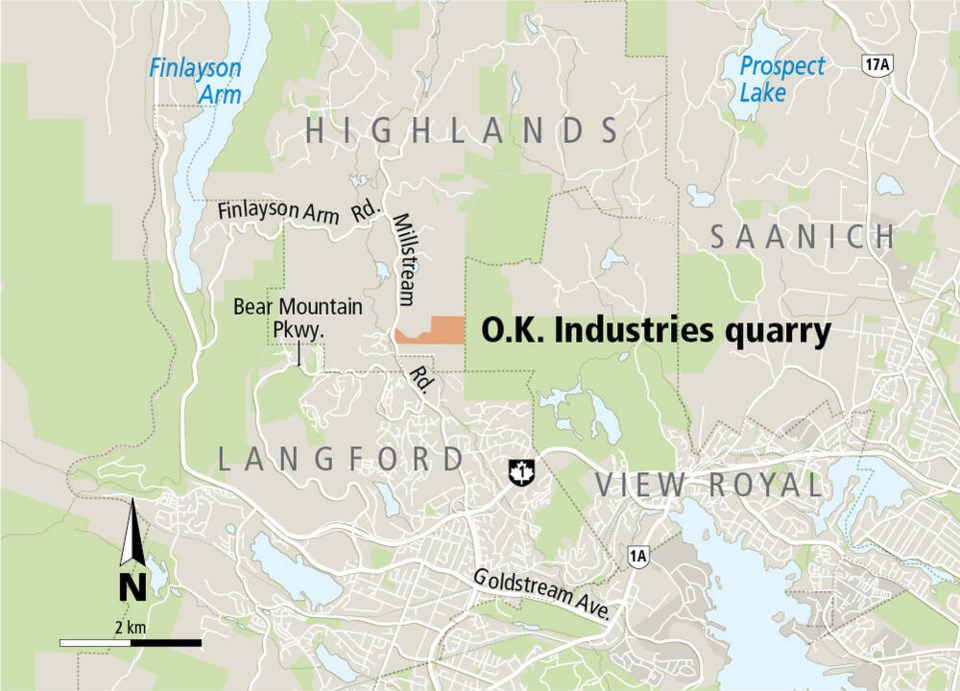The Highlands District Community Association’s final attempt to stop development of a quarry along Millstream Road has been thwarted by the highest court in the land.
The Supreme Court of Canada turned down a petition asking the court to hear a case to determine if provincial officials should have to consider climate change before issuing mining permits.
It was the final throw of the dice for the community group. In June, the B.C. Appeals Court dismissed the association’s final attempt in B.C. to stop the quarry.
Scott Richardson, chairman of the association, said having the court turn down the request will not change the fact that the rules around mining have to change.
“This week, of all weeks, with COP26 and the increasing demands for action, it must be obvious that we need to do all we can to help preserve our planet,” he said. “Believe it or not, B.C.’s mining laws do not regulate the climate-change impacts from smaller-sized projects like [the quarry]. Sooner or later, the laws governing resource extraction activities must change.”
Richardson has said there is a need to tackle what he considers antiquated mining legislation that doesn’t take into account things like First Nations’ interests and climate change.
“We really feel the company in doing what clearly and obviously no one in the community wanted them to do and the province in permitting this without examining climate change over an aquifer is on all counts wrong,” he said. “Our satisfaction comes from knowing we have done all that we could.”
Climate change, concerns over groundwater and surface water runoff, road safety, noise, dust and loss of old growth trees and a wetland have all been cited by the community association in attempts to shut down the quarry.
According to the province’s Energy and Mines Ministry, it is up to the statutory decision maker to determine what is reasonable to take into consideration on permit applications, and that can include climate change.
The province suggested the professionals preparing designs for mining proponents have an obligation to consider climate change where appropriate.
The ministry pointed out that sustainability guidelines prepared by the Engineers and Geoscientists B.C. say that when one of their members is reviewing a project’s full life-cycle costs, they must consider measures to mitigate climate change, including minimizing greenhouse-gas emissions, while balancing economic, social and environmental factors.
Richardson said the fight against the quarry has brought the community together, and for that reason he is not disappointed they have lost the fight.
“In the Highlands, we are proud not to have been mere bystanders in the process of global consciousness-awakening, but to have invested our volunteer time, money and resources to do everything we can to accelerate the process,” he said.
The quarry is being developed by OK Industries, which bought a 64-acre property in 2015 for $4.2 million. The company initially applied to have it rezoned from its green-belt designation to accommodate commercial and light industrial activity.
When the District of Highlands rejected the proposal in 2016, OK applied to the province for a mines permit for a quarry. That permit was granted last year.
The approval triggered the community association’s application for a judicial review of the mines permit, which the courts denied, and then spurred the appeal.
The District of Highlands has also appealed to stop the quarry. The district appealed a ruling that local bylaws over OK Industries’ activities on the quarry site do not apply as the activities, which include tree falling, soil removal, blasting and building, fall under provincial jurisdiction under the Mines Act.




